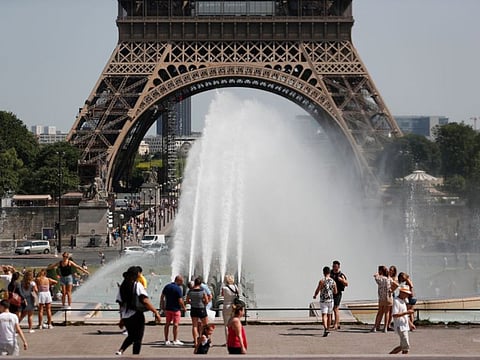A critical time for our planet
The Abu Dhabi summit on climate change is laying the ground work for a long-term solution

In France, warm weather has broken all previous records and the government has invoked emergency measures to deal with the effects of the severe heat. In California, there are reports the mussels exposed by a low tide simply steamed and opened, just as if they were prepared in a kitchen. India has just dealt with incredibly high temperatures for a period of 30 days that killed at least 40 people. And in Spain, emergency services are dealing with tinder-dry forest fire conditions, while at least two there have died from heat-related causes.
These individual incidents point to a collective truth – our climate is changing. Our planet is getting warmer. And we are responsible. Weather events are becoming more extreme – and more frequent. Time is fast running out for governments and individuals to be able to reverse the inexorable warming of our planet from a point where irreversible and very dangerous damage is inflicted by our long-term love affair with fossil fuels and our carbon emissions.
But there is hope. Governments are committed to lowering our carbon footprint, embracing renewable energy and collective reducing or eliminating the factors that have brought us to this pivot point in the evolution of this blue planet.
While the Paris Agreement of 2015 did set goals to lower the temperature of the planet by 2 degrees Celsius, the stark reality is that those commitments won’t make that happen.Gulf News
Right now, in Abu Dhabi, government ministers together with leaders from the business sector, indigenous peoples and researchers and influencers from the environmental and climate sector, are meeting to lay the groundwork for the United Nations Secretary-General’s Climate Summit that will happen later this year. It’s an initiative that marks a critical milestone in the fight against our planet’s rising temperature.
This summit will set out goals that will need to be met to ensure that our planet doesn’t warm to the point of no return. These are commitments that governments will sign on to, committing to a cleaner and greener future, one built on lower emissions, reduced carbon footprints and more effective and widespread use of renewable energy sources.
While the Paris Agreement of 2015 did set goals to lower the temperature of the planet by 2 degrees Celsius, the stark reality is that those commitments won’t make that happen. More needs to be done sooner, and new targets need to be set – one of the key goals of the UN’s summit on climate change. Now, in Abu Dhabi, those targets are being formulated. The summit is also looking at the commitment of developed nations to fund developing nations to meet their goals of lowering emissions.



